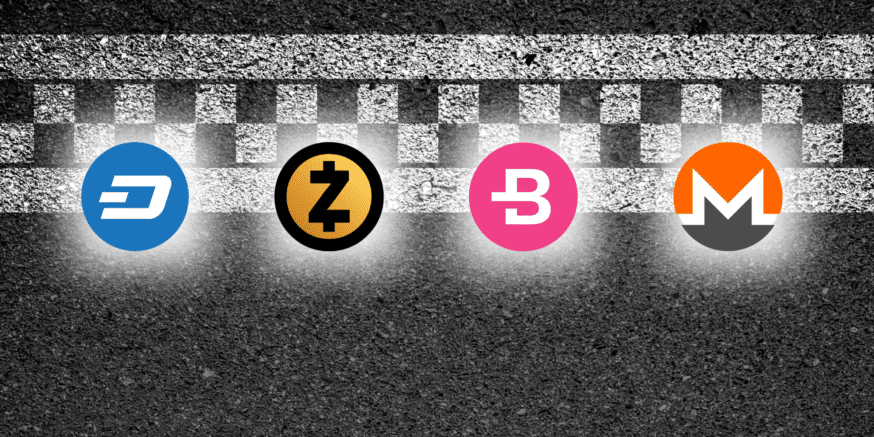November 13, 2021
HOME

How a Best Privacy Coin Can Enhance Your Online Security
Privacy coins are an alternative way to hide your identity online. What are they? How do you get one? These are all great questions and we are going to answer them so you can make an informed decision.
A privacy coin is like conventional cryptography; only they mask information and hide wallet addresses that can be used to track down someone. In this article, we are going to go over what a privacy coin is, how they work, and what they're used for. In the end, you will have the best privacy coin to protect your identity online.
Unlike regular Cryptocurrency, privacy coins do not use top down network protocols. This means there is no need to worry about sending money over an insecure internet or even to send it at all! These currencies work by using cryptographic protocols to transfer transaction information between two parties without revealing any personal information. This transaction information is invisible and can only be read by the parties involved in the transaction. This is done through what is called mixing the transaction data in a mathematical mix and the transaction is thereafter sent and recorded on the peer to peer network.
To explain how this works, lets take a look at how traditional Cryptocurrency functions. Let's say you wanted to transfer funds from an online merchant to your own personal bank account. You would normally go to the merchant's website, sign up for an account, and transfer the funds. The problem here is that when you do this, you are exposing your sensitive transaction information to the public internet. This can be done through the use of a "weedle" protocol, which is a mathematical encoding designed to encrypt sensitive transaction information. The weedle protocol is combined with a regular cryptocoin like bitcoin or litecoin, which adds extra protection to your private transaction information.

The next step is to add a verifying digital signature to every outgoing transaction. This way, anyone who understands the encryption routine can see that the transaction is coming from the owner of the private key. The digital signature is added as a "proof of authenticity", so that if someone wants to verify that the transaction came from you, they simply look at the private key's fingerprint and determine whether it matches the fingerprint that they see in the system database. This process is also used for "hiding" IP addresses, which hides your real IP addresses from third parties.Learn more at privacy coins crypto
The next step in private cryptography is to lock the wallet and only allow selected users (called "wallets") to make transactions. To do this, you will create what is called a "keypool". Your keypool is composed of your entire private key and each transaction that you authorize comes from one or a few keys you have in your wallet. Whenever anyone tries to make a transaction against your private key, they first try to break the lock on your wallet, and if they succeed, they get no keys. This is how you prevent unauthorized transactions, since the only person who has access to your transactions is you, so no one else can make them. There are several different types of privacy coins available to suit your needs, such as password-protected wallets, anonymous virtual money transmitters, etc.
Another advantage of these coins is that they provide greater scalability. Unlike money transmitters or account numbers, these can transfer money to any number of beneficiary addresses. Even though the transaction amounts may be reduced (because you're only allowed to send to certain people), there are still high transaction volumes. If you only want to set up one beneficiary address for your entire family, and the funds are modest, you won't need a huge keypool. However, if you're a millionaire who wants to spread his wealth to as many charities as possible, you'll need a larger keypool, since larger amounts of money require greater scalability.
With more serious security problems arising in the world today, the popularity of this technology is likely to grow even further. Because no one knows who is making the transactions, this type of fungibility ensures that you or your beneficiary never know which transactions are made with your money. With the right kind of fungibility, this is just one of the most effective ways of ensuring privacy online. Hopefully more companies will start adopting this highly advanced technology, allowing them to provide greater scalability, better privacy, and increased efficiency when it comes to secure online transactions.
Posted by: keyer at
01:36 PM
| No Comments
| Add Comment
Post contains 761 words, total size 5 kb.
<< Page 1 of 1 >>
11kb generated in CPU 0.0067, elapsed 0.0203 seconds.
30 queries taking 0.0151 seconds, 41 records returned.
Powered by Minx 1.1.6c-pink.
30 queries taking 0.0151 seconds, 41 records returned.
Powered by Minx 1.1.6c-pink.









